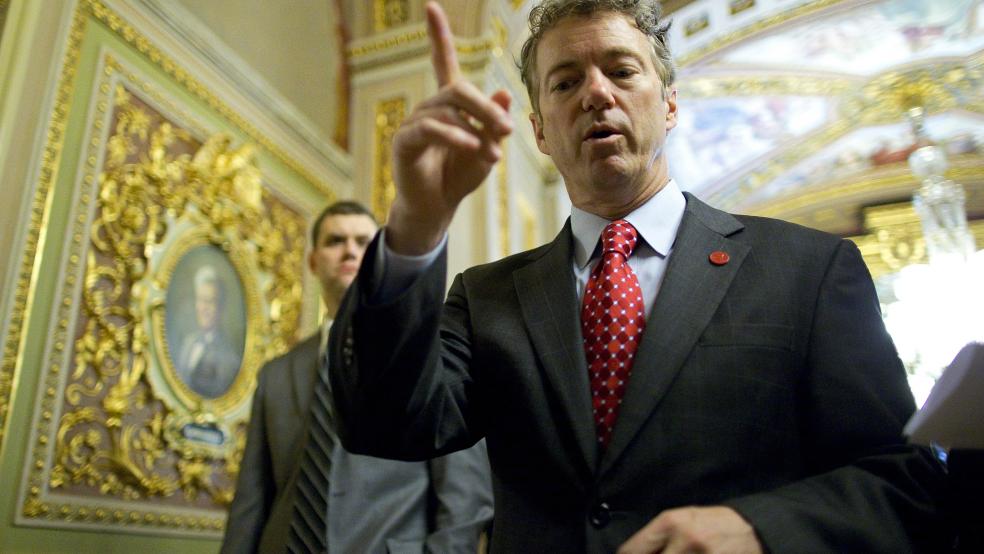Sen. Rand Paul (R) may have notched a victory over the weekend when the Kentucky GOP approved a scheme that will allow him to run for re-election to the Senate and for the White House at the same time, but his fellow Republicans attached some serious strings to the deal.
The party’s central committee voted 111-36 on a motion to ditch the state’s May presidential primary election with caucuses on March 5, a few days after ten southern states will vote to pick a presidential nominee in what is being called the “SEC Primary.”
Related: Rand Paul’s White House Run Is on Life Support -- and He Knows It
"It's a great day. As you know, winning a two-thirds vote is not easy, but we exceeded two-thirds," Paul told reporters after the vote, according to The Courier-Journal. "We had a really, I think, a great discussion. It's almost a little bit like being on a jury. There's back and forth, and back and forth. Ultimately I think people got to the point where they were very comfortable with the idea."
But instead of giving Paul, whose candidacy has yet to catch fire many observers thought it would, carte blanche after he successfully lobbied the state’s election rules, his fellow Republicans added an amendment to the caucus plan requiring he give the party a $250,000 down payment to cover the cost of the switch.
The tab is due September 18, two days after the next GOP presidential debate. If Paul doesn’t make good on his promise, Kentucky will revert back to its traditional primary system, according to state party officials who estimate the total cost for the caucuses will run between $400,000 and $600,000.
That is a considerable amount of change for any campaign and could pose a challenge for Paul’s uneven money-raising operation.
Related: Why Rand Paul May Have to Pay to Stay in the Presidential Race
The freshman lawmaker raised $7 million in the opening months of his White House bid, putting him firmly in the middle of the pack of GOP contenders. Further complicating things, the money is divvied up between Paul presidential bank account and a joint fundraising committee, which funnels the initial $2,700 of each donation to his presidential campaign and the next $2,700 to a potential Senate run.
Paul is set to spend the next two days campaigning in Alaska where he will spell out his plans to combat climate change.
The Last Frontier may seem like an odd stop for a 2016 hopeful, but Paul’s visit will wrap up less than a week before President Obama and Secretary of State John Kerry are due to travel to Alaska for a three-day tour that will include meetings with local officials and attending a State Department-sponsored conference on the Artic.





